Uncategorized
-
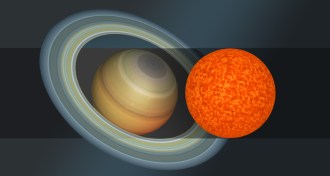 Astronomy
AstronomyTeensy star vies for title of smallest known
A Saturn-sized star is one of the smallest yet discovered.
-
 Astronomy
AstronomyAstronomers get glimpse of star 9 billion light-years away
A bright blue star sends its light from two-thirds of the way across the universe, thanks to a chance alignment with a galaxy cluster.
-
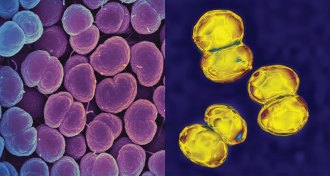 Health & Medicine
Health & MedicineThe fight against gonorrhea gets a potential new weapon: a vaccine
A vaccine used in New Zealand to curb meningitis also appeared to drop gonorrhea infections, results that hint at a way to make a gonorrhea vaccine.
-
 Neuroscience
NeuroscienceJust one night of poor sleep can boost Alzheimer’s proteins
Deep sleep may prevent the buildup of Alzheimer’s proteins.
-
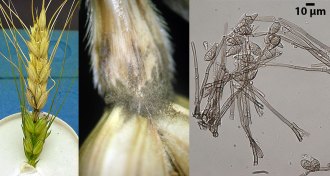 Genetics
GeneticsHow a crop-destroying fungus mutated to infect wheat
Study details how wheat got a new pathogen called blast fungus.
-
 Health & Medicine
Health & MedicineDrinking sugary beverages in pregnancy linked to kids’ later weight gain
Consuming sugary drinks while pregnant may mean kids are heavier when they reach elementary school age.
-
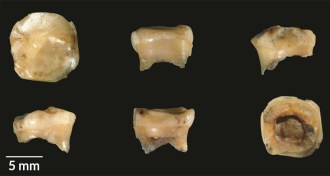 Anthropology
AnthropologyFossil tooth pushes back record of mysterious Neandertal relative
A Denisovan child’s fossil tooth dates to at least 100,000 years ago, researchers say.
By Bruce Bower -
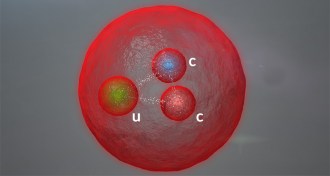 Particle Physics
Particle PhysicsNewfound particle relies on its charm(s)
First-of-its-kind subatomic particle is composed of two charm quarks and an up quark.
-
 Quantum Physics
Quantum PhysicsChina’s quantum satellite adds two new tricks to its repertoire
Satellite performs quantum teleportation and securely transmits encryption keys.
-
 Plants
PlantsHermaphrodite wildflower has its own battle of the sexes
A new example of sexual conflict shows up in a plant with a troublesome pollinator.
By Susan Milius -
 Archaeology
ArchaeologyPin-drop test pops Greek amphitheater’s acoustic claims
Analysis of an ancient Greek amphitheater’s ability to carry sounds reveals overblown tour guide claims.
-
 Science & Society
Science & SocietyDive deep to discover unexpected connections
Readers often praise Science News for its brevity. But some ideas need more space, writes acting editor in chief Elizabeth Quill.